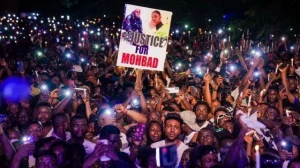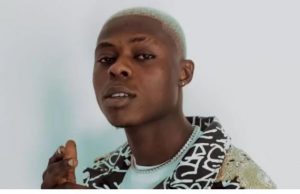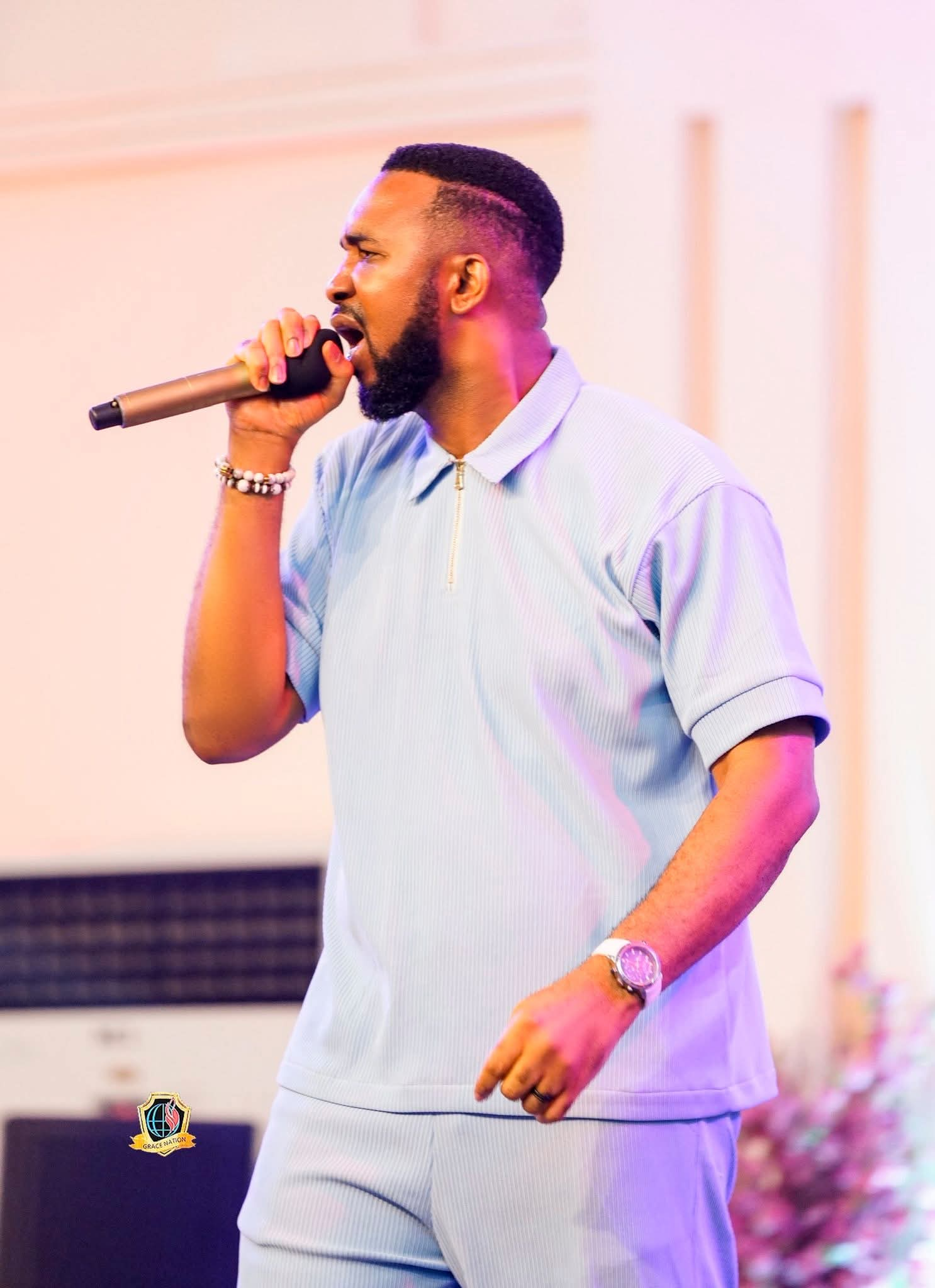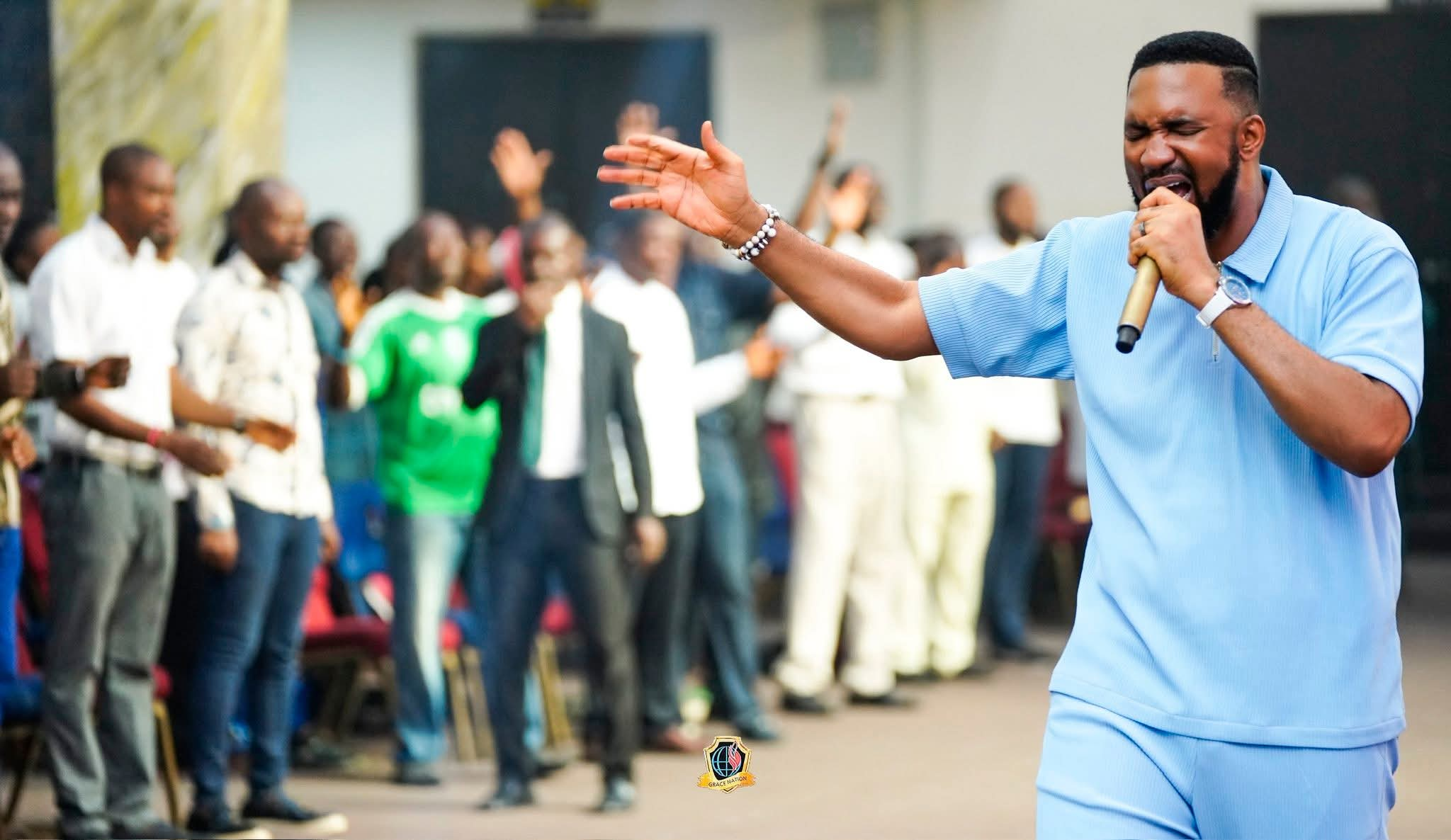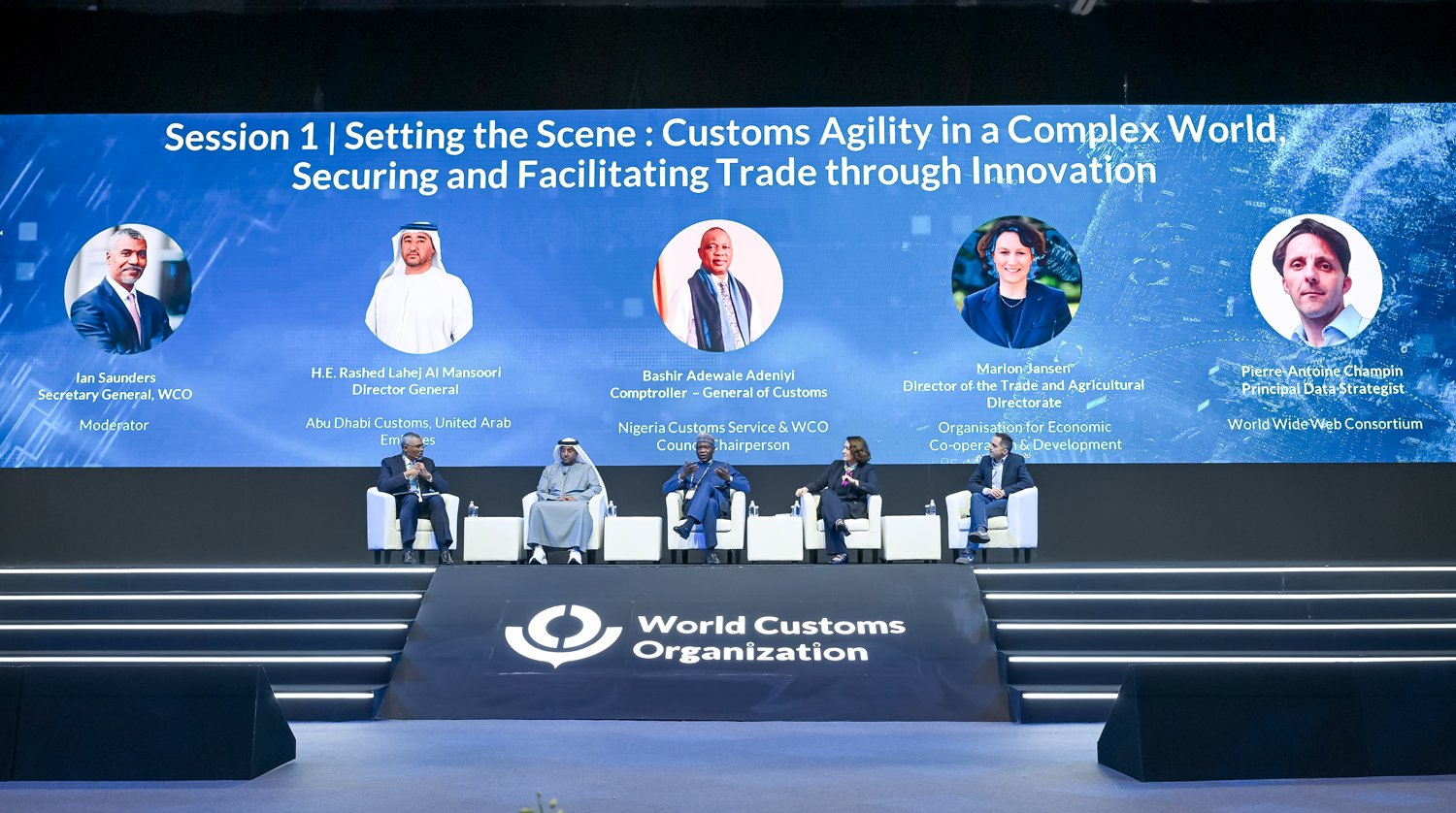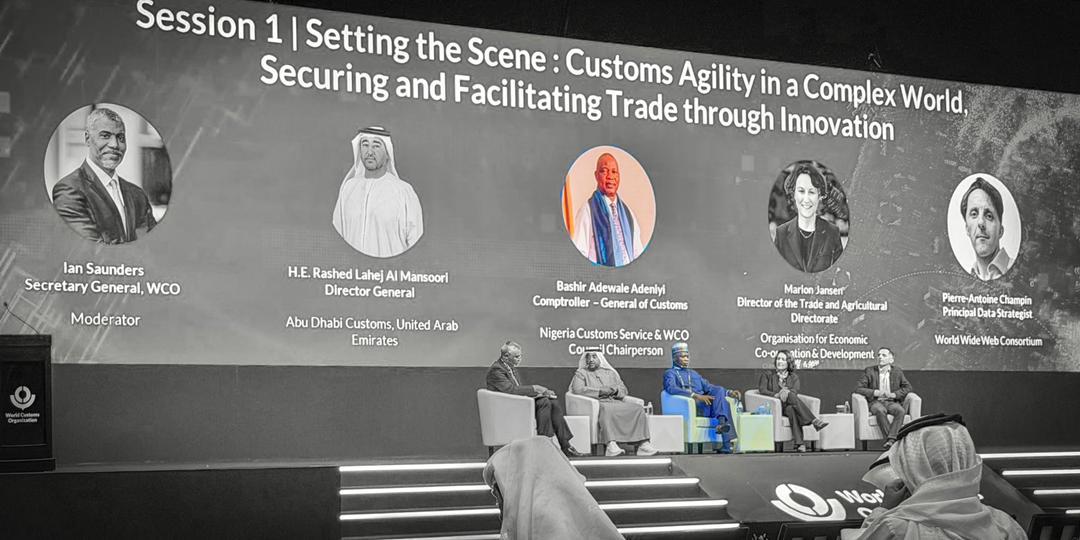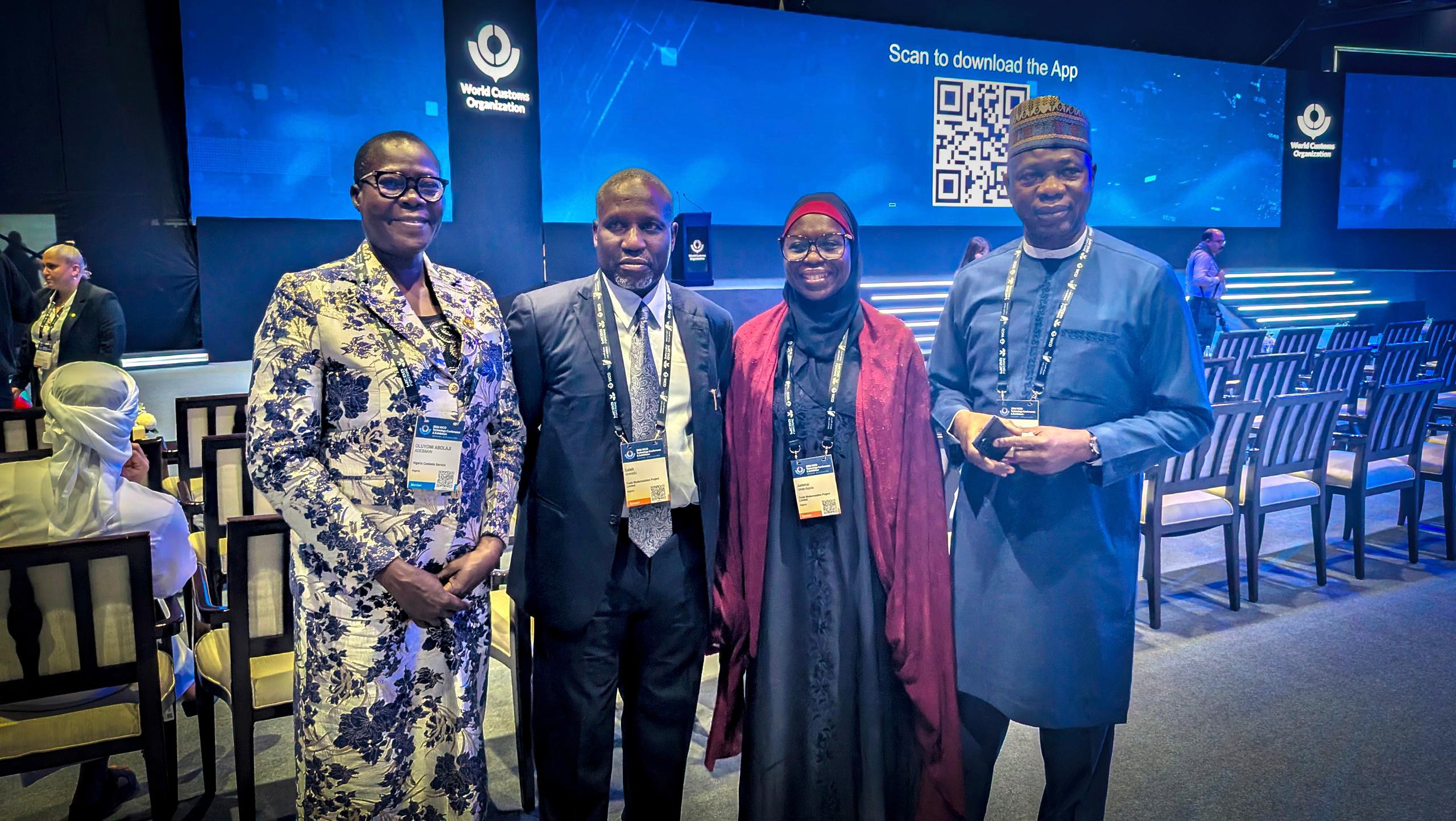Uncategorized
Mohbad: Death as the ultimate promotion By Toni kan …and how we killed him

Mohbad: Death as the ultimate promotion By Toni kan
…and how we killed him
The question everyone is asking is – Who killed Mohbad?
But the question no one seems to be asking is – what do we do when we find out who killed Mohbad?
No Nigerian musician has been mourned with such an overwhelming outpouring of emotion verging on hysteria in the manner that MohBad, (Ilerioluwa Oladimeji Aloba) aka Imole has been mourned since his passing in controversial circumstances on September 12, 2023.
There have been protests and candlelight processions in states across Nigeria and in cities across the globe.
His sophomore album, Blessed has been topping charts across platforms. In death, MohBad has found the global acclaim that eluded him in life.

He may be dead but God has answered the prayer he uttered in Sabi – “don’t let my foes rejoice over me.”
But such is the nature and irony of dying young and joining the 27 Club, no less. Janis Joplin, Amy Winehouse, Jimmy Hendrix, Kurt Cobain, Jim Jones. The list grows and Mohbad has joined them in Rock n Roll heaven.
Before we proceed, it might be pertinent to moderate that third paragraph by adding a qualifier…not since Dagrin and Fela Anikulapo Kuti has a Nigerian musical artist been mourned with so much emotion.
Dagrin’s death hit hard because it was not just the death of a musical artist but the death of potential. He was primed to take over from the likes of Lord of Ajasa and would probably if he had lived longer, contested for Olamide’s shine and street cred and even Naira Marley’s with the vice grip he had on the jugular of the streets in his short run. But death had other plans.
Fela was different. He had lived long, accomplished much and his death was a matter of time what with him being afflicted with AIDS which back then was akin to an instant death sentence.
But Mohbad is a different kettle of fish (and a smelly one at that). He was young, on the up and has died in circumstances mired in controversies.
Two EPs and four to five monster hits and the Light of his Blessed life has been snuffed out.
Since his passing, blame has been passed around and names have been mentioned. Former label honcho, Naira Marley has been mentioned as has music promoter, Sam Larry. There is also the insinuation that he was forced to drink a substance by officials of the anti-drug agency.
Twitter has been abuzz in the past two weeks becoming a fertile patch with conspiracy theories sprouting like blades of corn piercing the earth after rain.
MOHBAD AND CANCEL CULTURE
But while the autopsy result is being awaited, losses are being calculated. Former label mate, Zinolesky has seen his American tour cancelled before it even took off. DJs and record stations have stopped playing Naira Marley’s songs.
Folks are also demanding that Sam Larry be found and made to answer questions.
All this is befuddling because the first reports about Mohbad’s death reveal that he passed on after being given an injection.
A nurse has now been arrested and an autopsy carried out to determine the cause of his death.
But questions remain and no matter what we learn at the end, Naira Marley’s reputation (or whatever was left of it) is gone. That is the nature of cancel culture and the lynch mob mentality of social media. Shoot first, then ask questions later!
DID MOHBAD’S FATHER ABANDON HIM?
MohBad’s paterfamilias has also been in the eye of the storm thanks to an ill-advised television interview during which he is reported to have said: “look at the house I am living in”. The statement has placed a bulls-eye sign on his back. Folks are incensed; how dare he talk about his living condition when the son he abandoned has just died?
But people will die and life must go on.
That said we need to fact-check the emotional outbursts. Did Mohbad’s father really abandon him and his siblings after he married another woman?
Mohbad’s words seem to answer this question as he sings in Sorry, the first song on his debut album Light.
Daddy no get salary/Ten years I no see mummy/Step mother no care/ Landlord dey worry/My brothers are hungry/Daddy gather money/Make I go poly/I go poly but I no go class/Daddy I’m sorry/I don dey yahoo/I don dey take banku/Omo pastor ti wonu aye/Mummy just dey pray/Daddy just dey pray for me/make e better for me
When MohBad sings – Omo pastor ti wonu aye (the pastor’s son has become worldly) – the portrait he paints is not of a delinquent father. Indigent yes, but not delinquent!
And to play devil’s advocate; what are we to expect from a father who has invested all? One who has begged and borrowed to send his son to school only for that son to leave school to become a fraudster or “join bad gang” as we say on the streets.
We could say yes, Mohbad finally made it but at what cost? Success is a lottery and when it comes to the lottery of life there are no guarantees but getting an education is a surer bet.
So, his father did not abandon him but he clearly misspoke in that interview but is that enough to also cancel him?
THE SAM LARRY AND NAIRA MARLEY ANGLE
Who is Sam Larry and why is his name turning up like the tortoise in a folktale? Aside from the fact that he is supposed to be a music promoter with supposed connections to people in high places (people who have now disavowed him) Mohbad appears to name-check him on the song, Holy:
Owo mi oope
Oma di gobe
Ma pe Sammy Larry wa
Ah
Emi ti mi o holy
Mohbad clearly had a relationship with Sam Larry, one that went south and social media is replete with videos and pictures of a cane-wielding bearded goon believed to be Sam Larry disrupting Mohbad’s video shoot. That was in June 2023.
A while before that, videos had circulated of a bruised and bloodied Mohbad who alleged that he had gone to a meeting to discuss his change of management and had ended up being beaten by Naira Marley’s boys in the latter’s residence.
These instances as well as the well-reported falling out between label owner Naira Marley and his Marlian House recording artist, Mohbad are at the core of insinuations that Mohbad’s death is linked to his falling out with Marley.
His mother while receiving a delegation told her audience – “I know my son, he told me that Naira Marley usually threatened him. Please Nigerians help me to look for him; please have mercy on me; that is all you can do for me. I cannot singlehandedly fish him out. Also, he told me the National Drug Law Enforcement Agency (NDLEA) gave him some water in a bottle to drink sometimes ago. Help me please.
In Nigeria, artistes and label owners have been falling out since the time of Jide Obi and Tabansi Records, through Snoop Dog and Suge Knight all the way to last week when Aubrey O’Day of Danity Kane called out Puff Daddy (or whatever his current moniker is) over a request to sign an NDA.
There is even a trending story about Sunny Ade and his travails at the hand of his former label owner Chief Bolarinwa Abioro who ran African Songs Limited.
The fact is simple; to blow, an artiste needs a leg up. Cue the Svengali-like label owner aka Naira Marley in this instance. Studio sessions have to be booked. Producers have to be paid and those bottles of Hennessy and Martell don’t buy themselves. They are paid for by the label and label owner who is looking forward to recouping his investment.
So, while no one is holding brief for the alleged battery, one must also not lose sight of the fact that if MohBad needed to exit the Marlian family, he had to do it within the terms of his contract.
This is important because before he joined the Marlian family he was living in Ikorodu and going through hard times.
When he rhapsodises that “Hustle dey Odo Naira”on the song Holy, he is clearly a long way from the trenches he sings about in Feel good where he confesses that: “When I dey Ikorodu sapa mumi moma ronu, moma sukun.” – (When I was in Ikorodu, poverty held me in a vice grip, I wallowed in my thoughts, I drowned in tears).
The Marlian affiliation clearly wiped away his tears, for a while, it now seems, before things went awry.
WE ALL KILLED MOHBAD
The world is mourning the musical artiste known by the stage name MohBad aka Imole but how good was he? If he had not died on September 12th, 2023, would the world have noticed him the way they did?
And if we say he was so good and so full of potential, we must ask ourselves how many shows he played this year and by that I mean how many A-list shows?
The word on the streets is that promoters gave him a wide berth because he was hard to manage. They say he forgot lyrics and turned up late for shoes. Is all that true?
but if those are lies, the question to ask is why didn’t he get the big shows? Why was he not included in trips to O2 and world tours by artists he had collaborated with in the past?
Why didn’t the millions of people who have downloaded his songs and albums since his passing do so before he died?
Did Naira Marley have such a huge influence that he stopped promoters from booking MohBad and you and I from downloading his songs and albums? How many of us even knew he had a music label or what it was called?
Bella Schmurda has acknowledged that he didn’t include MohBad on his album because he didn’t want trouble from the Marlians.
Sure he was nominated for The Beatz and The Headies off the success of his first album, but since his death, his second album, Blessed has climbed to No. 1 on Apples album charts, knocking off Burna Boy and Davido.
If we had supported him while alive, he could have called Naira Marley’s bluff and paid no heed to the promoters who would not book him for shows. He would have been truly independent with the resources to take care of his family and grow his Imolenization record label.
You and I and all those expressing faux outrage on Twitter failed him. That is a fact.
And if you don’t believe me listen to Patoranking’s hit song “Celebrate Me” where he sings “Celebrate me now wey I dey alive/Appreciate me now I dey alive/No be when I leave this life/ You go dey fake am for my wife.”
WAS MOHBAD’S MUSIC ANY GOOD?
Now, to the music.
MohBad stamped his foot firmly in the Nigerian musical firmament with the release of his song, Ponmo, a risqué and infectious ditty featuring Naira Marley and Lil Kesh. It opens with a reference to a woman’s vagina and then trundles downhill from there.
The streets loved it. The salaciousness , the lewdness and the seeming panting of rabid dogs after Ponmo which is shorthand for you-know-what.
Ponmo is the number 3 song on his debut Light and even though the album opens with Sorry, a deeply contemplative song about his struggles and his home situation which borrows a verse from Sunny Ade’s 1974 hit, Esu biribiri pe bo mi o, it was to the risqué and the salacious that we flocked and now we mourn.
In borrowing from Sunny Ade, MohBad was calling on the world to come bear witness the story of his struggle. Did we bear witness?
Another hit song was KPK with Rexxie from which the line “Talo so pe ko po ke – was made a street anthem.
His first album which featured Naira Marley, Davido and Lil Kesh was clearly a Marlian House project as is evident from the production and sound except for the aforementioned Sorry and Father Abraham which stick out because of their subject matter and socially conscious lyrics spiced with scriptural references.
The album reflected MohBad’s promise and potential and aside from Ponmo, other stand-out tracks are Once Debe featuring Davido and Cinderella. The former enlists Davido and over a bouncy beat re-christens what we know as Okafor’s law. Davido’s lyrics anticipates Na Money featuring Cave Men and Angelique Kidjo off his Timeless album.
Where the first outing saw Mohbad through prism of the Marlians, in terms of aural aesthetics and lyrics, the second album, Blessed, is more mature, more contemplative and more self-assured and a reflection of who Mohbad is; the son of a pastor who wanted to escape a live of privation through music which he saw as a blessing.
Taken now with the benefit of hindsight, the songs in Blessed seem loaded and prescient. The first song Beast and Peace opens with “Mo silent mood but beast ni mi/Mo le cause violence but still, peace ni mi/You don’t have to hurt me, before you win/You don’t have to kill somebody before you sin.”
It appears that whoever he might have been addressing did not pay heed to his words and did not only hurt him but sinned by killing him but the jury is still out on whether it was a “win”.
In the second song, Sabi, Mohbad returns to church as he closes out with the already referenced “Don’t let my foes rejoice over.”
The fuji inflected Account Balance with Zlatan continues on the same trajectory with copious references to Jesu and keeping the peace but peace kept eluding him.
La pio pio sees Mohbad return to his Marlian roots with a catchy danceable tune that recalls the best of Naira Marley and here the boastfulness returns as he reference Don Jazzy in a beautiful pun – “because I turn Don dem say I use Jazz.”
Muted are the risqué references and allusions and where there was boasting about sexual prowess, Mohbad exhibits a more mature bent of mind. On Blessing for instance he drops wisdom as he thanks God – “I’m covered by your blessings/I’m living by your grace.”
The most underwhelming song on the album is Omo mi, a love song intended for his lover but it is a song stymied by the need to be politically correct in celebrating a loved one. It never rises to the heights of Cinderella or Omokomo from the Light EP.
But despite God’s blessing, MohBad seemed able to shake off dread as is evident in his constant references to enemies, frenemies, violence, hurt and death.
In Peace he opens with – Plenty enemy wey dey follow me/Maje ko mu mi (Don’t let them catch me).
Since his passing on September 12 and if the conspiracy theories are to be believed, it seems those enemies finally “caught him” but as he prophesied in the same song – I know there is a day all my pain will go away/ So then I party away.”
MohBad is likely looking down on us from Rock n Roll heaven and smiling with a spliff in his hand as he parties away while we work ourselves into a frenzy because all that pain has finally gone away.
@Lagosreview
news
Ramadan 2026: Let’s Be United, Shina Akanni Urges Muslims.
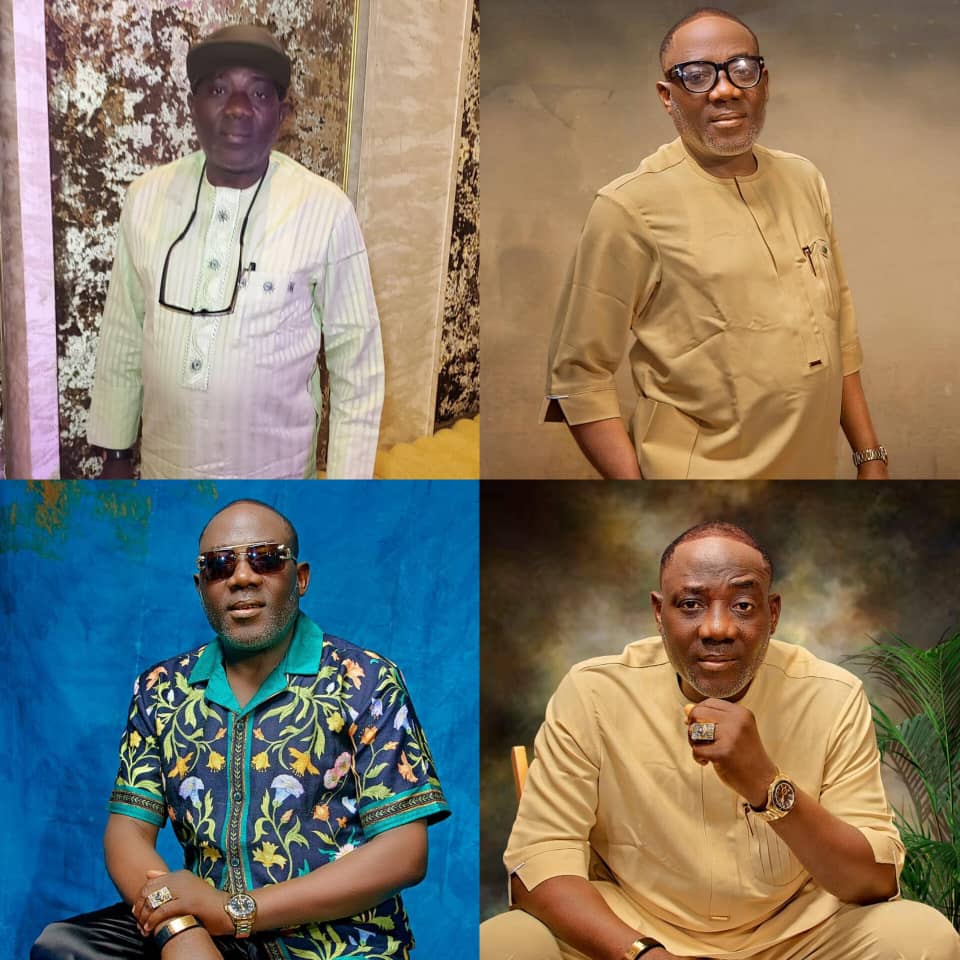
Ramadan 2026: Let’s Be United, Shina Akanni Urges Muslims.
As Muslims all over the world begins the 30 days compulsory fasting and prayer today,top Fuji Musician Aare Sir Shina Akanni Aroworeyin Scorpido has congratulates them for witnessing another month of Ramadan.
Akanni advised them to follow the teachings of the the Holy Prophet Muhammad (SAW) which is peaceful co existence among themselves and their neighbor ‘because Islam is Religion of peace”.
He said the month of Ramadan is an holy month therefore Muslims should try as much as they can to maintain peaceful coexistence among themselves and others and that they should see themselves as ambassador of peace.
While praying for Nigeria,Aare Sir Shina Akanni Aroworeyin Scorpido said he believes that there will be an economic turnaround soon because what’s is happening now are signs of thought times that never last “if we can pecevere things will get better”.
The Scorpido crooner who recently released a hip hop single titled “Magbelo” said he is currently working on a complete album which will be released before the end of the year.
Aare Sir Shina Akanni Aroworeyin Scorpido whose last album ‘ABCD” is still in hot demand said that his next album will be a pot pouri of all kinds of music because his brand of Fuji music is a blend Fuji , Hip-hop,Apala ,Highlife and others.
Uncategorized
The Enemies Within: Jonahs Are Not Manageable — Dr. Chris Okafor
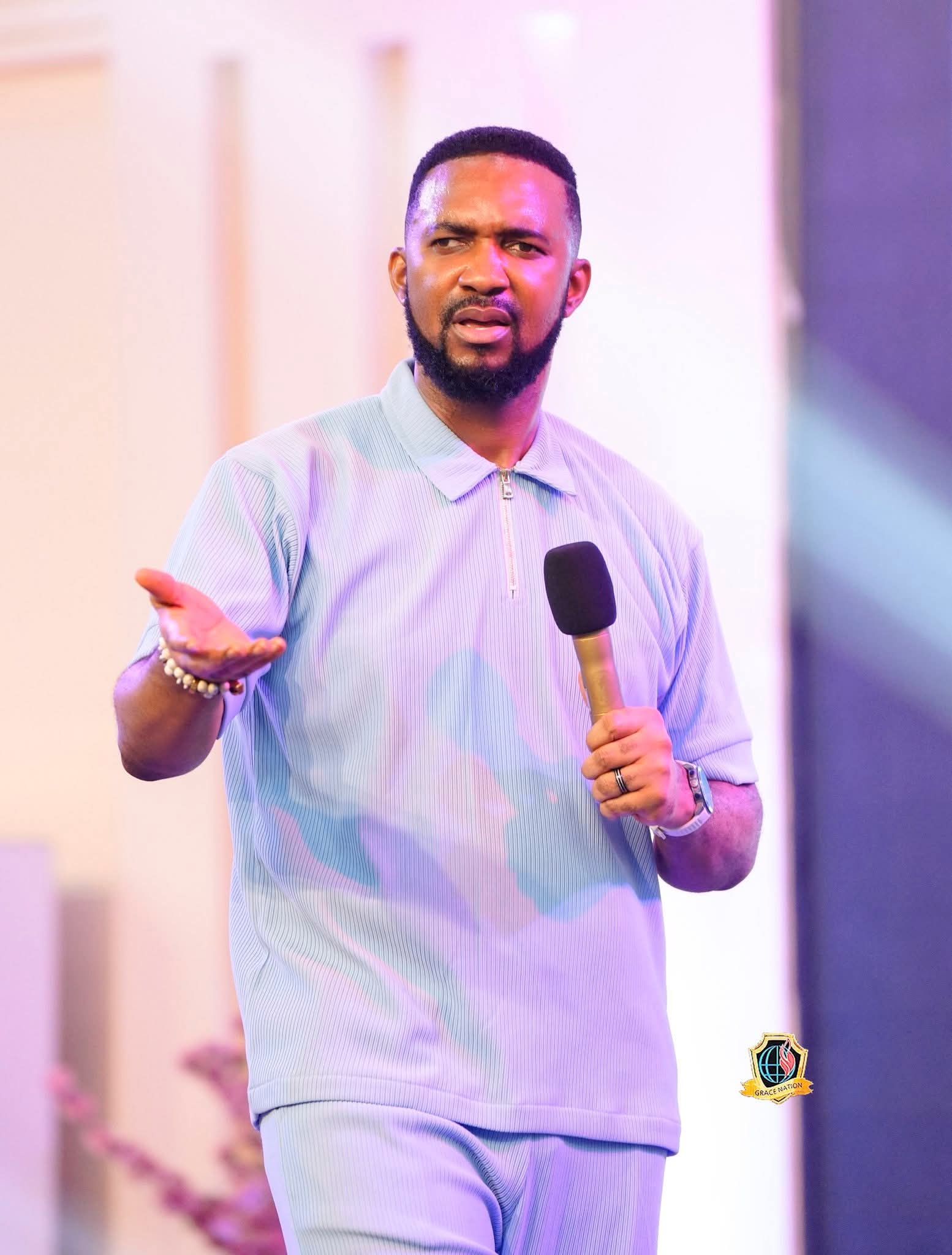
The Enemies Within:
Jonahs Are Not Manageable — Dr. Chris Okafor
…….“To remove Jonah, you must bring Jesus into the matter.”
When a “Jonah” enters a person’s life, confusion, gossip, blackmail, betrayal, and the pull-him-down syndrome often follow. But the moment Jesus Christ is invited into the situation, the storm subsides and stability is restored.
This was the central message delivered by the Generational Prophet of God and Senior Pastor of Grace Nation Global, Dr. Chris Okafor, during the midweek non-denominational Prophetic Healing, Deliverance and Solutions Service (PHDS) held at the international headquarters of Grace Nation Worldwide in Ojodu Berger, Lagos, Nigeria.
The Clergyman also declared that Nothing Happens Without Spiritual Influence
In his sermon titled “The Enemies Within,” Dr. Okafor declared that nothing happens without spiritual involvement. According to him, every visible battle has an invisible root.
Referencing the biblical story of Jonah, the Man of God explained that Jonah’s presence on the ship gave access to a contrary spirit that tormented everyone onboard.
Despite the losses suffered by innocent traders and sailors, the storm persisted because of one man’s disobedience.
However, he noted that when Jesus speaks into a situation, every storm must obey. Just as Christ rebuked the storm and it ceased, so too will the storms in believers’ lives subside when He is invited into their “boat.”
*The Impact of a Jonah*
Dr. Okafor further emphasized that “Jonahs” are difficult to manage. When such individuals are present in one’s circle, progress becomes delayed.
What should ordinarily manifest quickly may be prolonged or frustrated because someone close—someone who understands you deeply—may be operating as a spiritual adversary.
He explained that negative narratives, unnecessary battles, and unexplained setbacks often begin when a “Jonah” gains access to a person’s inner circle.
*The Solution*
“To remove Jonah from the boat of your life,” the Generational Prophet declared, “you must invite Jesus Christ into the matter.”
According to him, when Jesus takes control of the boat, the plans of the enemy are overturned.
What was designed for downfall becomes a testimony. No storm or battle can succeed where Christ reigns, and the enemy is ultimately put to shame.
The midweek service witnessed a strong prophetic atmosphere, with the power of God evident through deliverance, restoration, and divine revelations.
The Generational Prophet ministered deeply in the prophetic, calling out names, villages, and addressing alleged spiritual strongholds, as many lives were reportedly restored—all to the glory of God.
By Sunday Adeyemi
Uncategorized
FROM BORDER TO MARKETS: HOW NIGERIA’S REFORMS ARE REWRITING AND MODERNISING TRADE FACILITATION By O’tega Ogra
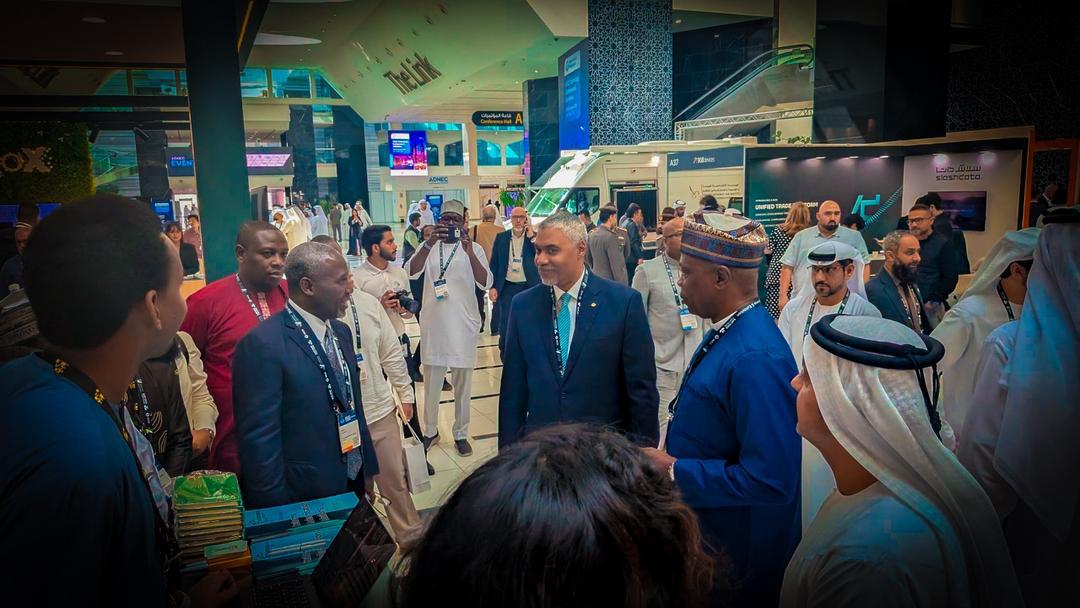
FROM BORDER TO MARKETS: HOW NIGERIA’S REFORMS ARE REWRITING AND MODERNISING TRADE FACILITATION
By O’tega Ogra
On the surface, the 2026 World Customs Organization (WCO) Technology Conference in Abu Dhabi, held in the last week of January, followed a familiar script: flags, formal sessions, carefully worded speeches. But beneath the choreography, something more consequential was unfolding. As customs chiefs and trade officials compared notes on the future of borders, Nigeria arrived not with theory, but with a working proposition.
The Nigeria Customs Service (NCS) Modernisation Project, being implemented through Trade Modernisation Project (TMP) Limited, unveiled to a global audience of customs administrators and policy leaders a window into how Africa’s largest economy is confronting one of the most complex challenges in public administration: reforming the machinery of trade while it is still running.
For decades, customs reform was treated largely as a technical exercise—frequent patches here, shoddy fixes there; new software in one corner, revised procedures in another. Nigeria’s presence in Abu Dhabi signalled something different. TMP Limited, working in partnership with the NCS, advanced the argument that trade is a cornerstone of economic development and must be supported by organic, sustainable partner ecosystems. Such ecosystems deliver speed and trust, revenue and credibility, and secure borders without stifling commerce.
That argument resonated in a room increasingly aware that global trade is no longer defined solely by tariffs and treaties, but by data, interoperability, and the quiet efficiency of systems that simply work.
The annual WCO Technology Conference has, in recent years, become a barometer for the direction of global trade governance. This year’s discussions reflected a shared anxiety: supply chains are more fragile, compliance risks are rising, and governments face mounting pressure to collect revenue without discouraging investment. Customs administrations now sit at the intersection of all three.
Nigeria’s response has been to attempt a full reset.
At the heart of this effort is the NCS Modernisation Project, implemented through a Public-Private Partnership (PPP) arrangement with TMP Limited as the concessionaire. The project seeks to replace fragmented technology deployments and manual processes within the Nigeria Customs Service with a single, integrated framework. This is anchored on B’Odogwu, a Unified Customs Management System (UCMS) that brings together cargo clearance, risk management, payments, and inter-agency collaboration. The ambition is sweeping—and so are the stakes.
Alhaji Saleh Ahmadu, OON, Chairman of TMP, framed the initiative as nothing less than an institutional reconstruction, designed to position the NCS at the forefront of global customs administration technology, aligned with international standards and assurance frameworks.
“Digital trade modernisation is not just about upgrading systems,” he told participants in Abu Dhabi. “It is about upgrading trust, predictability, and confidence in how trade flows through our borders.”
That choice of words matters. Nigeria’s economy has long struggled with the perception gap between its size and the ease of doing business. Investors cite delays. Traders complain of opacity. Government points to revenue leakages. In this context, customs reform becomes as much a credibility project as a technical one.
Saleh’s message was timely and direct: modern trade demands modern customs. Data-driven processes, automation, and risk-based controls are no longer luxuries; they are prerequisites for competitiveness in a world where capital moves faster than policy.
The institutional face of this digital transformation is the Comptroller-General of Customs, Bashir Adewale Adeniyi, who led Nigeria’s delegation to Abu Dhabi. His message reflected a subtle but important shift in how customs leadership now understands its role.
“Customs administrations today must evolve from gatekeepers to facilitators of legitimate trade,” Adeniyi said. “Nigeria’s customs modernisation project reflects our determination to place the Nigeria Customs Service at the centre of national economic transformation.”
It is a familiar refrain globally, but one that carries particular weight in Nigeria, where customs revenue remains a critical pillar of public finance. Automation, Adeniyi argued, is not about weakening control; it is about strengthening it through intelligence rather than discretion.
Risk management systems reduce unnecessary physical inspections. Integrated platforms limit human contact. Data analytics improve compliance targeting. When executed well, the result is faster clearance for compliant traders and tighter scrutiny for high-risk consignments.
In Abu Dhabi, peers from Asia, Europe, and Latin America listened closely to Nigeria’s presentation. Reforming customs in a small, open economy is one thing. Doing so in a market of over 200 million people, home to some of Africa’s busiest ports and its largest economy, is quite another.
Nigeria’s engagement emphasised that customs modernisation is embedded within a broader economic reform agenda under President Bola Ahmed Tinubu, GCFR. Simplifying trade procedures, strengthening revenue assurance, and aligning with international standards form part of a wider effort to reposition the economy for investment-led growth.
What makes the project particularly noteworthy is its insistence on end-to-end coherence. Rather than digitising isolated functions, the reform aims to connect agencies, harmonise data, and reduce duplication across government—an all-of-government approach that acknowledges an uncomfortable truth: trade friction is often created not at the border, but between institutions.
The WCO 2026 Technology Conference offered Nigeria more than a platform; it provided a stress test. Questions from peers were pointed. How will change be sustained across political cycles? How will capacity be built? How will entrenched institutional behaviours be unlearned?
The responses were pragmatic. Reform is being phased. Training programmes are ongoing. International benchmarks are being adopted not as slogans, but as operating standards. There were no claims of perfection—only a clear statement of intent.
“Our engagement here underscores Nigeria’s commitment to international cooperation,” Adeniyi noted. “We are learning, sharing, and contributing to global conversations on the future of customs administration.”
That contribution matters. As Africa moves to deepen regional trade under continental frameworks, customs efficiency will determine whether integration succeeds in practice or remains aspirational on paper. Nigeria’s experience, if successful, could offer a valuable template for other developing economies navigating similar constraints.
In Abu Dhabi, the mood was cautious but curious. Reform fatigue is real in many countries. Yet there was a growing sense that Nigeria’s effort—precisely because of its scale and difficulty—deserves attention.
Borders are rarely glamorous. But they are decisive. In choosing to modernise its borders in public, under global scrutiny, Nigeria is signalling something beyond technical competence. It is signalling seriousness.
And in global trade, seriousness still counts.
O’tega Ogra is Senior Special Assistant to President Bola Ahmed Tinubu, GCFR, responsible for the Office of Digital Engagement, Communications and Strategy in the Presidency.
-

 celebrity radar - gossips6 months ago
celebrity radar - gossips6 months agoWhy Babangida’s Hilltop Home Became Nigeria’s Political “Mecca”
-

 society5 months ago
society5 months agoReligion: Africa’s Oldest Weapon of Enslavement and the Forgotten Truth
-

 society6 months ago
society6 months agoPower is a Loan, Not a Possession: The Sacred Duty of Planting People
-

 news6 months ago
news6 months agoTHE APPOINTMENT OF WASIU AYINDE BY THE FEDERAL GOVERNMENT AS AN AMBASSADOR SOUNDS EMBARRASSING

